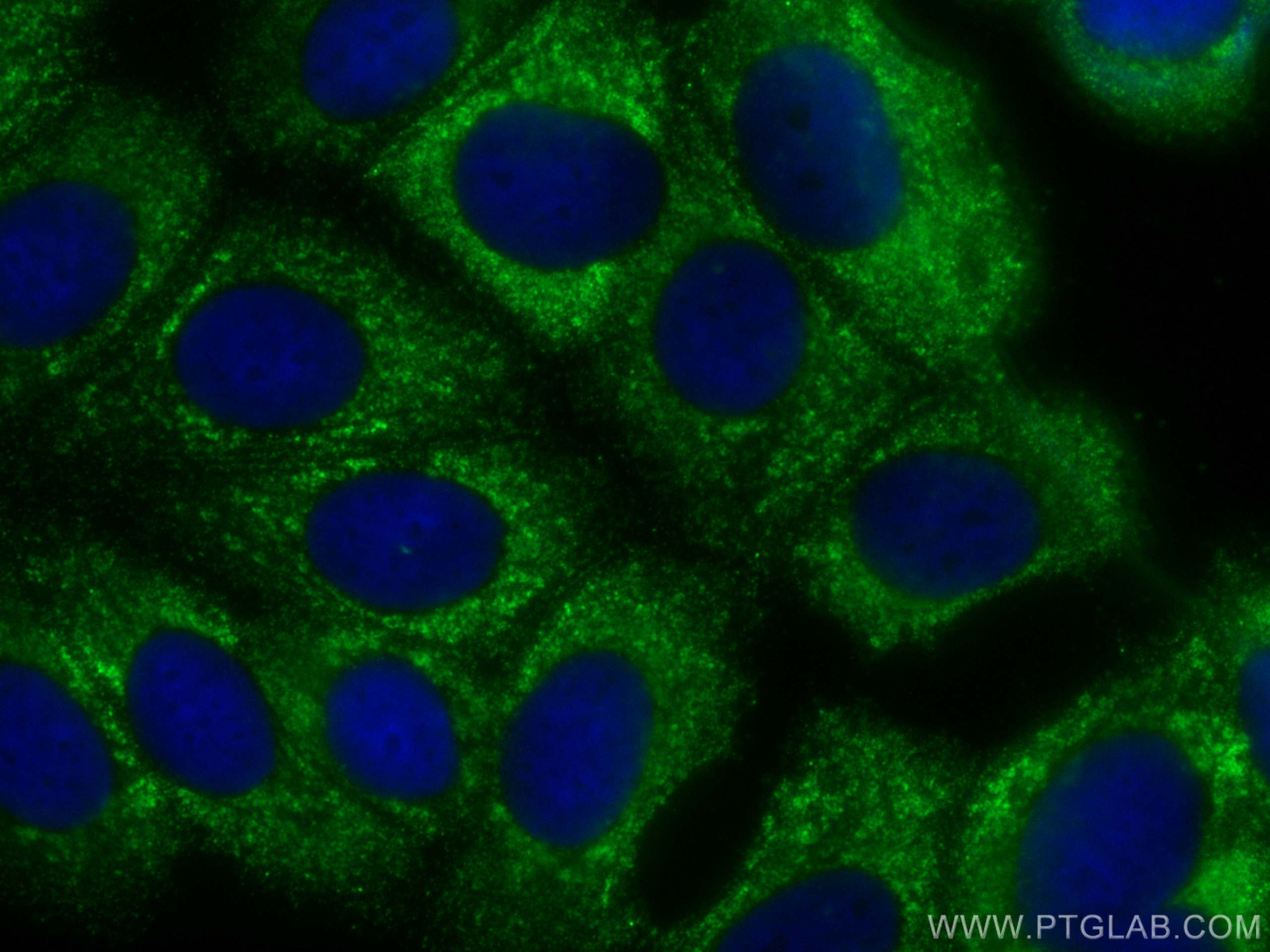- Featured Product
- KD/KO Validated
FUT9 Monoklonaler Antikörper
FUT9 Monoklonal Antikörper für IF
Wirt / Isotyp
Maus / IgG2a
Getestete Reaktivität
Hausschwein, human, Maus, Ratte
Anwendung
IF
Konjugation
CoraLite® Plus 488 Fluorescent Dye
CloneNo.
5D4G6
Kat-Nr. : CL488-60230
Synonyme
Galerie der Validierungsdaten
Geprüfte Anwendungen
| Erfolgreiche Detektion in IF | MCF-7-Zellen |
Empfohlene Verdünnung
| Anwendung | Verdünnung |
|---|---|
| Immunfluoreszenz (IF) | IF : 1:50-1:500 |
| It is recommended that this reagent should be titrated in each testing system to obtain optimal results. | |
| Sample-dependent, check data in validation data gallery | |
Produktinformation
CL488-60230 bindet in IF FUT9 und zeigt Reaktivität mit Hausschwein, human, Maus, Ratten
| Getestete Reaktivität | Hausschwein, human, Maus, Ratte |
| Wirt / Isotyp | Maus / IgG2a |
| Klonalität | Monoklonal |
| Typ | Antikörper |
| Immunogen | FUT9 fusion protein Ag8298 |
| Vollständiger Name | fucosyltransferase 9 (alpha (1,3) fucosyltransferase) |
| Berechnetes Molekulargewicht | 359 aa, 42 kDa |
| Beobachtetes Molekulargewicht | 44-46 kDa |
| GenBank-Zugangsnummer | BC036101 |
| Gene symbol | FUT9 |
| Gene ID (NCBI) | 10690 |
| Konjugation | CoraLite® Plus 488 Fluorescent Dye |
| Excitation/Emission maxima wavelengths | 493 nm / 522 nm |
| Form | Liquid |
| Reinigungsmethode | Protein-A-Reinigung |
| Lagerungspuffer | BS mit 50% Glyzerin, 0,05% Proclin300, 0,5% BSA, pH 7,3. |
| Lagerungsbedingungen | Bei -20°C lagern. Vor Licht schützen. Nach dem Versand ein Jahr stabil. Aliquotieren ist bei -20oC Lagerung nicht notwendig. 20ul Größen enthalten 0,1% BSA. |
Hintergrundinformationen
FUT9 is the main enzyme responsible for the synthesis of Lewis X (Lex) and catalyzes the last step in the biosynthesis of Lewis X antigen by addition of a fucose residue to precursor glycan structures. FUT9 is expressed in stomach, kidney, brain, and in leukocytes.
Protokolle
| Produktspezifische Protokolle | |
|---|---|
| IF protocol for CL Plus 488 FUT9 antibody CL488-60230 | Protokoll herunterladen |
| Standard-Protokolle | |
|---|---|
| Klicken Sie hier, um unsere Standardprotokolle anzuzeigen |


